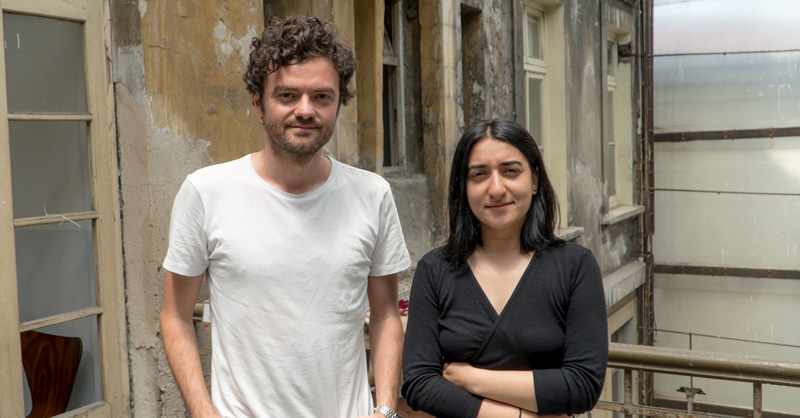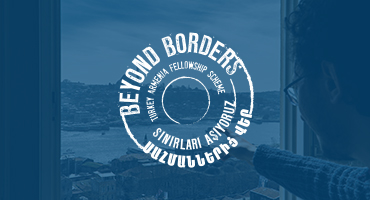Hrant Dink Foundation, through the projects implemented under Turkey-Armenia Programme, makes efforts to build closer ties between the peoples of the two neighbouring countries. Turkey-Armenia Fellowship Scheme, initiated for this purpose within the framework of the programme Support to the Armenia-Turkey Normalisation Process financed by the European Union, aims to foster cross-border affiliation and cooperation of professionals from the two neighbouring countries, while strengthening the ties between these two cultures.
Each city, each district, each neighbourhood and even each structure has its own identity. At the present time, rapid transformations that most urban areas undergo lead them towards a change of identity and the meaning of those areas hold for different segments of the society is also affected from those such changes. Arpenik (Arpi) Atabekyan is researcher on how the spaces are created from a gender perspective. Arpenik started her research in Yerevan and then, as a fellow, carried continued her studies to in Istanbul for six months, where she analysed Karaköy neighbourhood from the perspective of the a woman’s identity.
Arpenik Atabekyan graduated from Yerevan State University, Department of Oriental Studies, Chair of Turkish Studies with Bachelor’s degree and received her MA degree in Social Sciences from a joint programme between Middle East Technical University and Humboldt University. She translated several novels from Modern Turkish Literature into Eastern Armenian and is, currently, enrolled in a PhD programme at Friedrich Schiller University, Jena. The topic of her dissertation is “Mapping women’s exclusion: the private, the public and the production of gendered spaces in urban Yerevan”. Arpenik completed her fellowship at Center for Spatial Justice – Beyond Istanbul, and her research is focused on mapping of gendered spaces in Karaköy, Istanbul.
Yaşar Adanalı, one of the co-founders and project coordinators at the host organisation Center for Spatial Justice - Beyond Istanbul, states notes that at their centre, there are people from different professions, such as urbanists, including himself, architects, sociologists, journalists, artists ...etc. and he defines their major goal as to bringing together these the diversity of different disciplines together toto develop projects that are relevant for various issues of spatial justice in Istanbul and beyond. Adanalı says that Arpenik’s involvement at the centre, with and herthe contribution of thanks to her academic background and personal interests, helped them to re-think about the Karaköy regionneighbourhood, where their office is located, in from a gender perspective and also to analyse the gender equality/inequality that it possesses.
Arpenik Atabekyan and Yaşar Adanalı have talked about their experiences with the Turkey-Armenia Fellowship Scheme and their suggestions for future fellows and host organisations.
Please Note: Armenian, Turkish and English subtitles are available in the videos.

Turkey-Armenia Fellowship Scheme, in 2016-2017,
takes place within the framework of the programme
Support to the Armenia-Turkey Normalisation Process
funded by the European Union.




